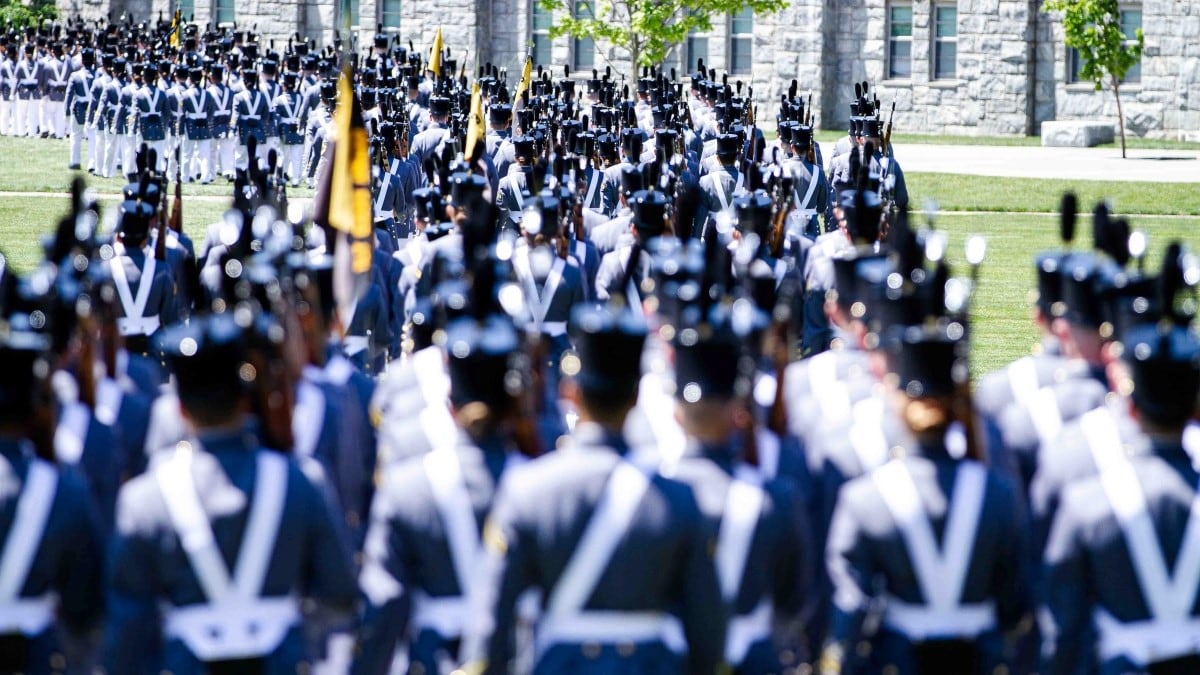Two federal judges recently rejected legal attempts to halt affirmative action in the military’s service academies, at least for now.
The anti-affirmative-action group Students for Fair Admissions filed lawsuits this fall seeking to end the use of race in admissions at the U.S. Military Academy at West Point, New York, and the U.S. Naval Academy in Annapolis, Maryland.
Students for Fair Admissions asked the two judges assigned to the lawsuits to ban affirmative action in the institutions immediately, before the cases went to trial.
But the judges put off making a decision on the contentious issue of affirmative action in the service academies, instead opting to let the lawsuits run their course.
To answer whether the use of race in admissions at West Point was constitutional, Judge Philip Halpern of the Southern District of New York wrote in his opinion Wednesday that he would need to see the “full factual record,” rather than just the early filings in the case.
West Point educates future Army officers, while the Naval Academy is for future Navy and Marine officers. Pentagon data from recent years has shown that, overall, civilian universities’ ROTC programs are the leading source of officers’ commissions.
RELATED

The lawsuits against the academies came a few months after the Supreme Court declared it was unconstitutional for civilian universities to provide a boost to applicants on the basis of their race. In that landmark decision, the court stopped short of banning affirmative action in the service academies, citing their “potentially distinct interests.”
Students for Fair Admissions, the same group that successfully challenged affirmative action in civilian universities at the Supreme Court, argued the service academies’ admissions policies amounted to illegal racial stereotyping. The group urged the judges to act now to prevent certain white applicants from undergoing what it characterized as an unfair process during the current admission cycle.
Halpern declined to do so, on the grounds that it was too early in the lawsuit to make that kind of decision. West Point hadn’t gotten the chance to lay out its argument and facts fully, so the judge was unwilling to provide “the extraordinary and drastic remedy” of a preliminary injunction, a step that would have upended the academy’s approach to admissions mid-cycle, he wrote in his opinion.
Judge Richard Bennett, of the District of Maryland, relied on similar logic in his Dec. 20 opinion explaining why he wouldn’t grant a preliminary injunction banning affirmative action in the Naval Academy.
Students for Fair Admissions is appealing Halpern’s decision not to issue a preliminary injunction in the West Point case, according to court documents.
The group has argued that affirmative action is a discriminatory and illegal policy that erodes internal and external trust in the military. The academies and their supporters have countered that affirmative action — by increasing racial diversity in the officer corps — prevents internal strife, builds faith in the military among the public, and aids recruitment and retention.
Defenders of affirmative action in the academies have noted that the officer corps is less racially diverse than the enlisted ranks: Nineteen percent of enlisted active-duty service members in 2022 were Black, compared to 9% of officers, according to Pentagon data.
The U.S. Attorney’s Office for the Southern District of New York is representing West Point, and the Justice Department’s Civil Division is representing the Naval Academy. Nicholas Biase, a spokesman for the New York office, declined to comment.
The Justice Department’s Civil Division and lawyers for Students for Fair Admissions did not respond to a request for comment by Military Times’ deadline.
Irene Loewenson is a staff reporter for Marine Corps Times. She joined Military Times as an editorial fellow in August 2022. She is a graduate of Williams College, where she was the editor-in-chief of the student newspaper.





